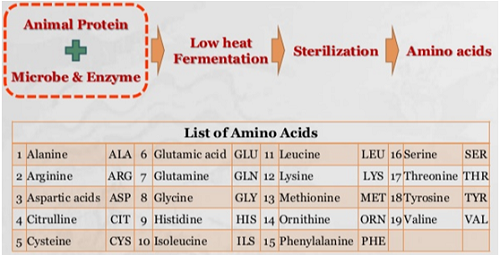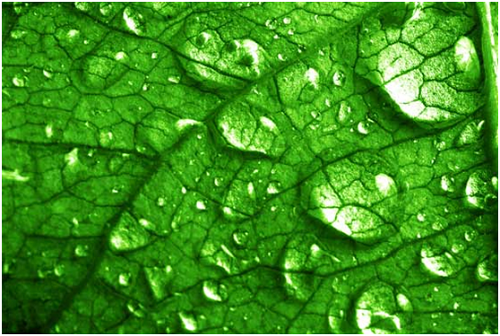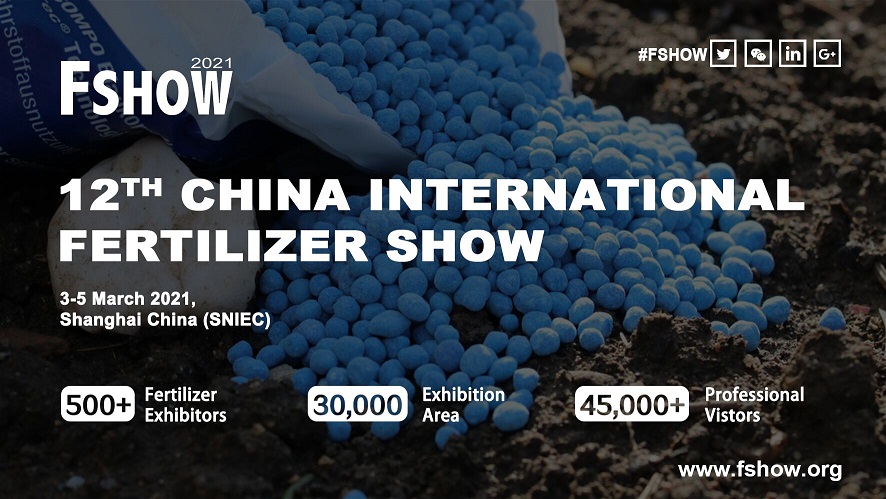
Exhibition time: 17-19 March, 2026 Shanghai, China
 中文
中文

Exhibition time: 17-19 March, 2026 Shanghai, China
 中文
中文

Agriculture production is a very intensive business and is related to better quality and better yield leading to better profitability.
Every Farmers dreams to achieve this goal. However to achieve this goal with advancement of technology, use of fertilizer and pesticides is not adequate. Now is the time to look at Bioenergetics and Biochemical aspects of plants, to achieve the goals of Farmers.
Every plant like any organism needs certain components for growth over and above soil, sun, rain and air. The basic component of living cells is Proteins, with building block material, Amino Acids. Proteins are formed by sequence of Amino Acids.
Plants synthesize Amino Acids from the Primary elements, the Carbon and Oxygen obtained from air, Hydrogen from water in the soil, forming Carbon Hydrate by means of photosynthesis and combining it with the Nitrogen which the plants obtain from the soil, leading to synthesis of amino acids, by collateral metabolic pathways. Only L-Amino Acids are part of these Proteins and have metabolic activity.
The requirement of amino acids in essential quantities is well known as a means to increase yield and overall quality of crops. The application of amino acids for foliar use is based on its requirement by plants in general and at critical stages of growth in particular. Plants absorb Amino Acids through Stomas and is proportionate to environment temperature.
Amino Acids are fundamental ingredients in the process of Protein Synthesis. About 20 important Amino Acids are involved in the process of each function. Studies have proved that Amino Acids can directly or indirectly influence the physiological activities of the plant.
Amino Acids are also supplied to plant by incorporating them into the soil. It helps in improving the microflora of the soil thereby facilitating the assimilation of nutrients.
Foliar Nutrition in the form of Protein( Amino Acids Liquid) and foliar spray provide readymade building blocks for Protein synthesis.

Protein Synthesis
Proteins have a structural function, metabolic function (enzymes), a transport function and a stock of Amino Acids function.
Only L - Amino Acids are assimilated by plants. D - Amino Acids are not recognised by the enzymatic locus and therefore can not participate in protein synthesis.
Hence Amino Acids obtained by organic synthesis are not well assimilated.
Stress Resistance
Stress such as High temperature, Low humidity, Frost, Pest attack, Hailstorm, Floods have a negative effect on plant metabolism with a corresponding reduction in crop quality and quantity.
The application of Amino Acids before, during and after the stress conditions supplies the plants with Amino Acids which are directly related to stress physiology and thus has a preventing and recovering effect.
Effect of Photosynthesis
Stomas are the cellular structures that control the hydric balance of the plant, the macro and micronutrient absorption and the absorption of gases.
The opening of the stomas is controlled by both external factors (light, humidity, temperature and salt concentration) and internal factors (amino acids concentration, abcisic acid etc.)
The Stomas are closed when light and humidity are low & temperature and salt concentration are high, when stomas are closed photosynthesis and transpiration are reduced (low absorption of macro & micronutrients) and respiration is increased (Carbohydrate destruction)
In this case the metabolic balance of the plant is negative. Catabolism is higher than anabolism. This implies slow metabolism and stops the plant growth.
L-glutamic acid acts as a cytoplasm osmotic agent of the “guard cells”. Thus favouring the opening of the stomas.
Action on the Stomas
Amino Acids are precursors or activators of phytohormones and growth substances. L - Methionine is precursor of ethylene and of growth factors such as Espermine and Espermidine, which are synsthesized from 5 - Adenosyl Methionine.L - Tryptophan is precursor for Auxin synthesis. L - Tryptophan is used in plants in L - Form only. L - Tryptophan is available only if hydrolysis of Protein is carried out by enzyme.If hydrolysis is carried out by acid or alkali, as done in many European countries,L - Tryptophan is destroyed.L - Arginine induces synthesis of flower and fruit related hormones.
Chelating Effect
Amino Acids have a chelating effect on micronutrients. When applied together with micronutrients, the absorption and transportation of micronutrients inside the plant is easier.
This effect is due to the chelating action and to the effect of cell membrane permiability.
L - Glycine & L - Glutamic Acid are known to be very effective chelating agents.
Amino Acids & PhytohOrmones
Amino Acids are precursors or activators of phytohormones and growth substances. L - Methionine is precursor of ethylene and of growth factors such as Espermine and Espermidine, which are synsthesized from 5 - Adenosyl Methionine.L - Tryptophan is precursor for Auxin synthesis. L - Tryptophan is used in plants in L - Form only. L - Tryptophan is available only if hydrolysis of Protein is carried out by enzyme.If hydrolysis is carried out by acid or alkali, as done in many European countries,
L - Tryptophan is destroyed.L - Arginine induces synthesis of flower and fruit related hormones.
Pollination and Fruit formation
Pollination is the transport of pollen to the pistil, so fecundation and formation of the fruit is possible.
L - Proline helps in fertility of Pollen. L - Lysine, L - Methionine, L - Glutamic Acid are essential amino acids for pollination.
These amino acids increase the pollen germination and the length of the pollinic tube.
Equilibrium of Soil Flora
The equilibrium of the microbial flora of the agriculture soil is a basic question for a good mineralisation of the organic matter and also for a good soil structure and fertility around the roots.
L-methionine is precursor growth factors that stabilize the cell walls of the microbial flora.
General
L - Glutamic Acid & L - Aspartic Acid, by transamination give rise to the rest of the amino acids.
L - Proline & Hydroxy Proline act mainly on the hydric balance of the plant strengthening the cellular walls in such a way that they increase resistance to unfavourable climatic conditions.
L - Alanine, L - Valine & L - Leucine improve quality of fruits.
L - Histidine helps in proper ripening of fruits.
